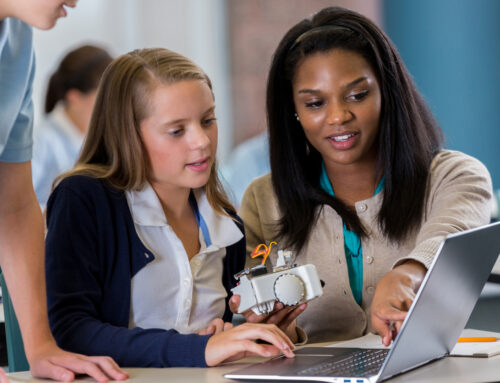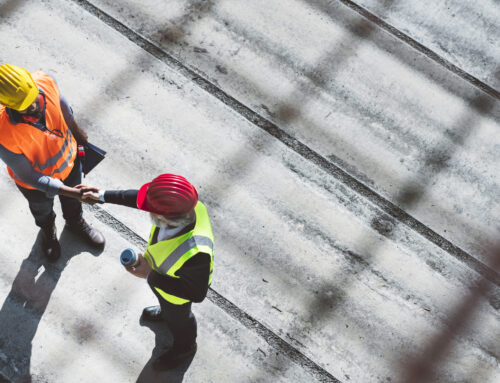What Skills are Needed to Become a Calibration Engineer?
A calibration engineer’s role is to make adjustments to machines, instruments and components using measuring and diagnostic software to ensure precision settings are in line with standards.
Calibration engineers perform tests, resolve issues, document results and prepare technical reports, requiring a keen attention to detail and superb hand eye coordination.
Requirements for calibration engineers may differ according to job and instruments that will be worked with; specific instruments demand specific knowledge and experience. However, generally, a calibrating technician’s roles are as listed above.
A qualification in mechanical or electrical engineering, be it a bachelor’s degree, apprenticeship or National Qualification is usually necessary for a calibration engineer job. A master’s degree, PhD or specialist experience is preferable but by no means a requirement. At least one years’ experience in a calibrating role or electrical environment is often essential.
Calibration Engineer Job Description
An example job description for a calibrating engineer might be:
In this role applicants will be responsible for making sure the instruments and testing devices are calibrated correctly and give accurate readings in line with standards. Applicants will be expected to perform this role meticulously, as improper calibration can cause issues concerning safety, wastage, and faulty quality of products. Therefore, being able to work well with hands and pay attention to detail is vital, as well as problem-solving skills and ability to work well and effectively with others.
The role will be both field and office based, requiring applicants to stay on top of recording calibrations and producing technical reports. Applicants may need to travel to the site of work and interact directly with customers.
For this role applicants must demonstrate an understanding of the technical processes and tools associated with calibrating, scientific knowledge concerning statistics and maths, and skills with data analysis and presentation. Understanding of related terms and technical jargon is imperative to this role. Basic IT skills and familiarity with common software packages are useful.
Applicants may also find a working knowledge of electricity and circuitry useful as they will be working with electrical apparatus.
Calibration Engineer Duties
Duties of a calibration engineer are as follows:
- Perform accurate calibrations
- Organise service schedules
- Record calibrations performed on equipment
- Troubleshoot
- Comply with customer requests
- Calibrate in multiple parameters in line with equipment use
- Understand and work within Safe Systems of Work (SSoW) and Health and Safety at Work Act (HASAWA)
- Work to ISO 9001: 2015 & 17025: 2017 standard
- Carry out quality inspections
Calibration Engineer Salary
Salary for a calibration engineer varies according to exact role, responsibility, experience and qualifications. Most calibration engineer job advertisements offer a salary between £25,000 – £30,000.
Indeed claims the average UK salary for calibration engineers is £27,428. Find out more about average salaries in this sector here.
Calibration Engineer Job Progression
As most industries, both public and private, utilise machinery or instruments needing calibration, calibration engineers have the flexibility of working in a variety of fields.
Gaining experience in a specific area of calibration, for example in mechanical vehicle companies, will create niche knowledge and provides the opportunity to specialise and become an expert in a domain.
Similarly, following gaining experience, calibration engineers may wish to get further qualifications to show for their knowledge. If not already university graduates, calibration engineers may wish to get degrees, which may also lead to increased pay.
After a few years, calibration engineers may be in the position to take on supervisory roles. This, too, would likely warrant increased pay.
Tips for Getting Started as a Calibration Engineer
Like starting any career, experience and willingness to learn is vital. It is important, especially in such skilled work, to gain relevant skills and qualifications. Not only will candidates be prepared to perform the duties expected of them, they will have shown perseverance and enthusiasm for the job.
Apprenticeships are popular with electrical jobs due to the fact apprentices get hands on experience while learning on the job and taking home pay. Apprentices are often popular with employers too, as they are well trained staff likely to stay loyal to the company.
Look out for vacancies and stay on top of openings to ensure you don’t miss any opportunities. Why not let recruitment specialists BMR Solutions help you?
Calibrating Engineer Jobs, Careers & Vacancies
If you are looking to get started in your calibrating engineer career and are not sure where to start, talk to our team at BMR solutions today. We specialise in finding the best engineering and technical jobs in Bristol – our highly passionate team are here to help you find the best positions available.





